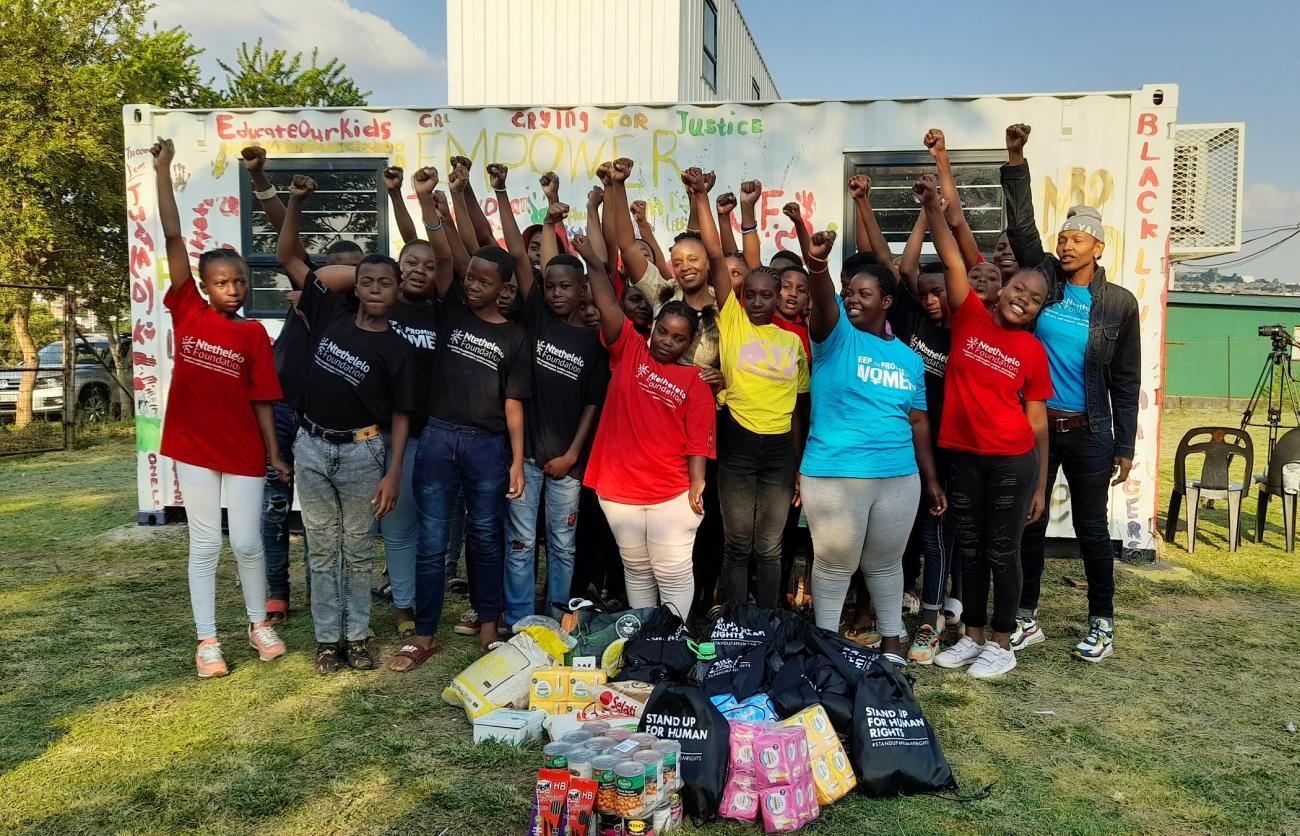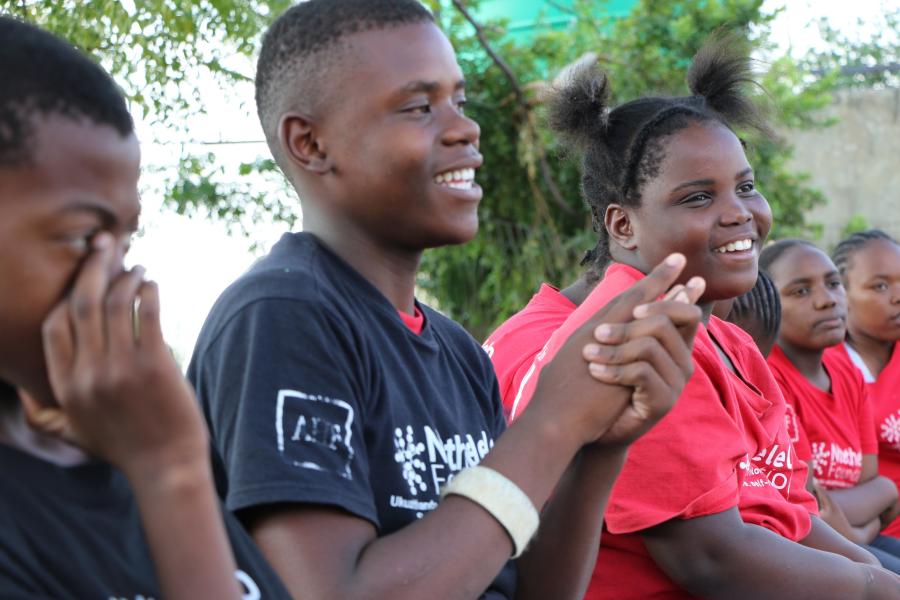Equipping young people to know, claim and defend their rights

I am a better person.” She now has aspirations to help her family when she is older. “I will make sure that my parents have a better life”.
The United Nations Office of the High Commissioner for Human Rights (OHCHR) Regional Office for Southern Africa (ROSA) closed off its Human Rights Month activities with a visit to the Ntethelelo Foundation early this year.
The Ntethelelo Foundation uses applied drama, interactive techniques and various art methodologies as facilitation tools to encourage dialogue among adolescents. At the foundation’s centre in Johannes-burg’s Alexandra Township, young people also receive tutoring in mathematics and English and counselling sessions.
The foundation’s interactive programmes and discussions are designed to engage school-going youth to foster social change, break the chain of gender inequality and poverty, help end violence against women and girls, and empower young people.
Previously the programmes were only open to girls, but in February 2021, boys also joined the sessions and have already taken away important lessons.
“We learnt how to respect women. This has changed me a lot. We learnt about dismantling toxic masculinity for example washing dishes at home and doing other chores”, says 14-year-old Tshepang.

Discussions on the day centered on what human rights means to each young person, the significance of Human Rights Day, and how the programmes at Ntethelelo have impacted their lives so far. Many of the
young people attending say they can see the change in their behaviour since attending the interactive sessions.
14-year-old Grace, who joined the programme when she was nine years old, says she used to bully other children and was disrespectful to her parents.
“I had a darkness inside of me and that changed and became a light."
I am a better person.” She now has aspirations to help her family when she is older. “I will make sure that my parents have a better life”.
Several young people also pointed out that while everyone should have human rights in their community these rights are often violated, citing lack of access to good education, living in informal structures that are often destroyed during hazardous weather, and rampant gender-based violence.
Following the discussions, two groups performed short plays demonstrating violations of youth rights followed by alternative scenarios where these violations are stopped and young people’s rights are respected and protected.
One of the plays depicted young people seeking out sexual and reproductive health services and being denied condoms by healthcare workers due to their age.
“The plays are about how we are treated because of where we come from,” says 16-year-old Susan. “We are judged. As a teenager it makes me feel sad because of the treatment they give us, and teenagers become mothers.”
OHCHR Regional Representative Abigail Noko, encouraged the youth to continue to stand up for their rights even in the midst of the challenges they face daily and to focus on their studies so that they can access better opportunities. “We are all born free and equal."
"That is the starting place to understand your rights. Know your human rights in order to claim them and defend them,” she said.
Following the interactive sessions and plays, Ms. Noko presented a donation of non-perishable food, personal hygiene items and stationery from OHCHR ROSA staff members.
*First names used to protect identity of minors



